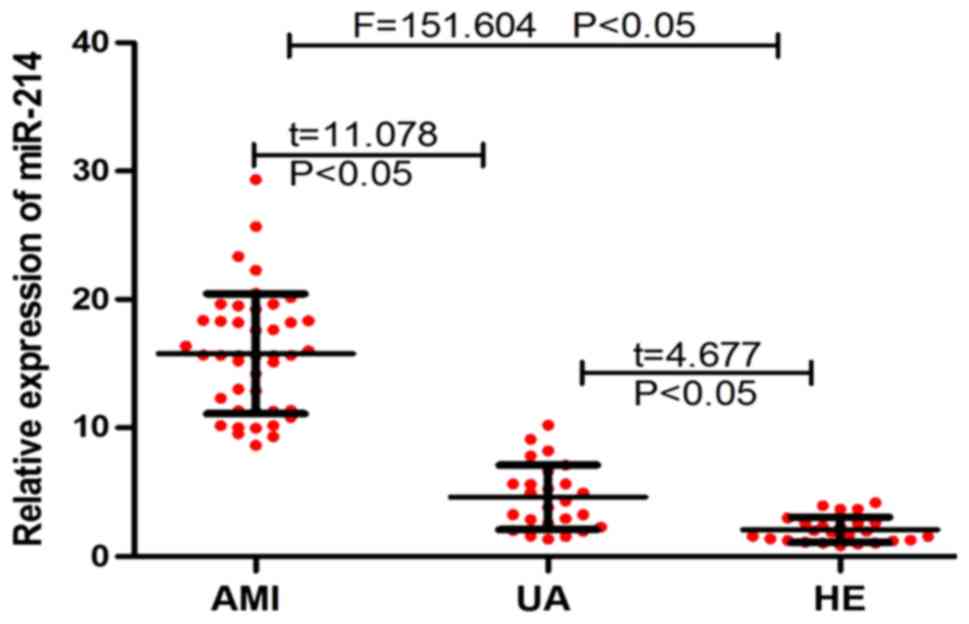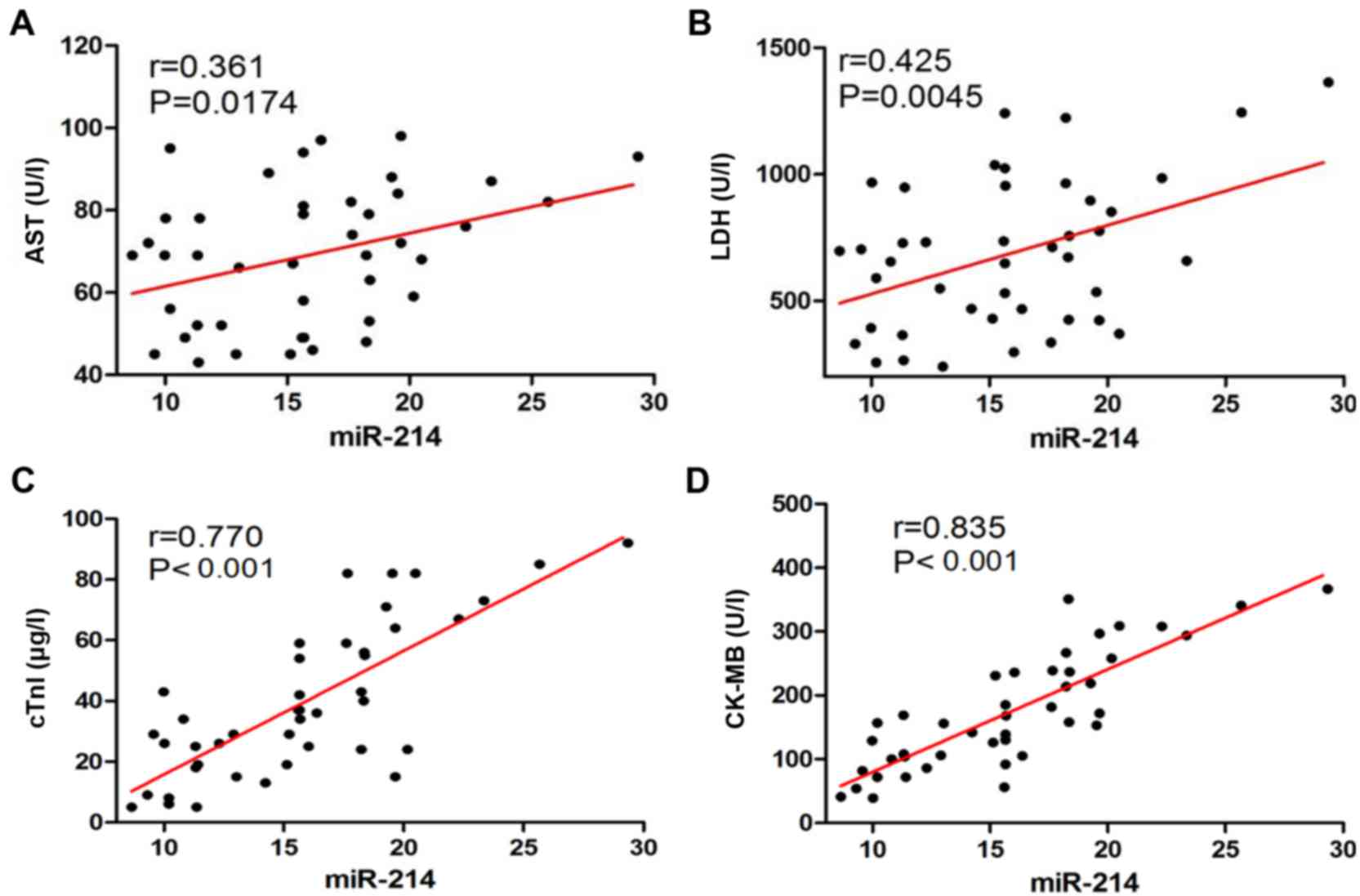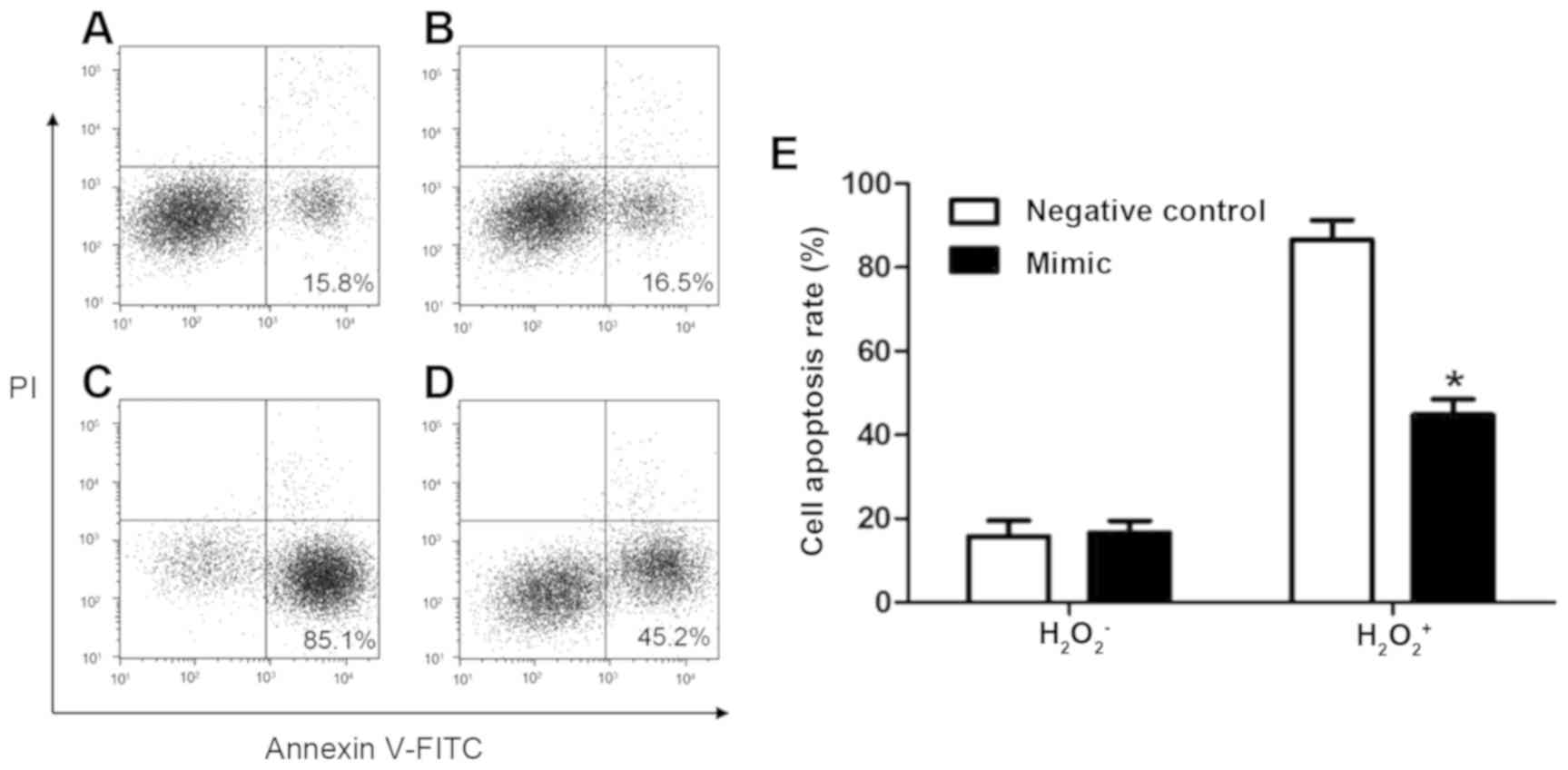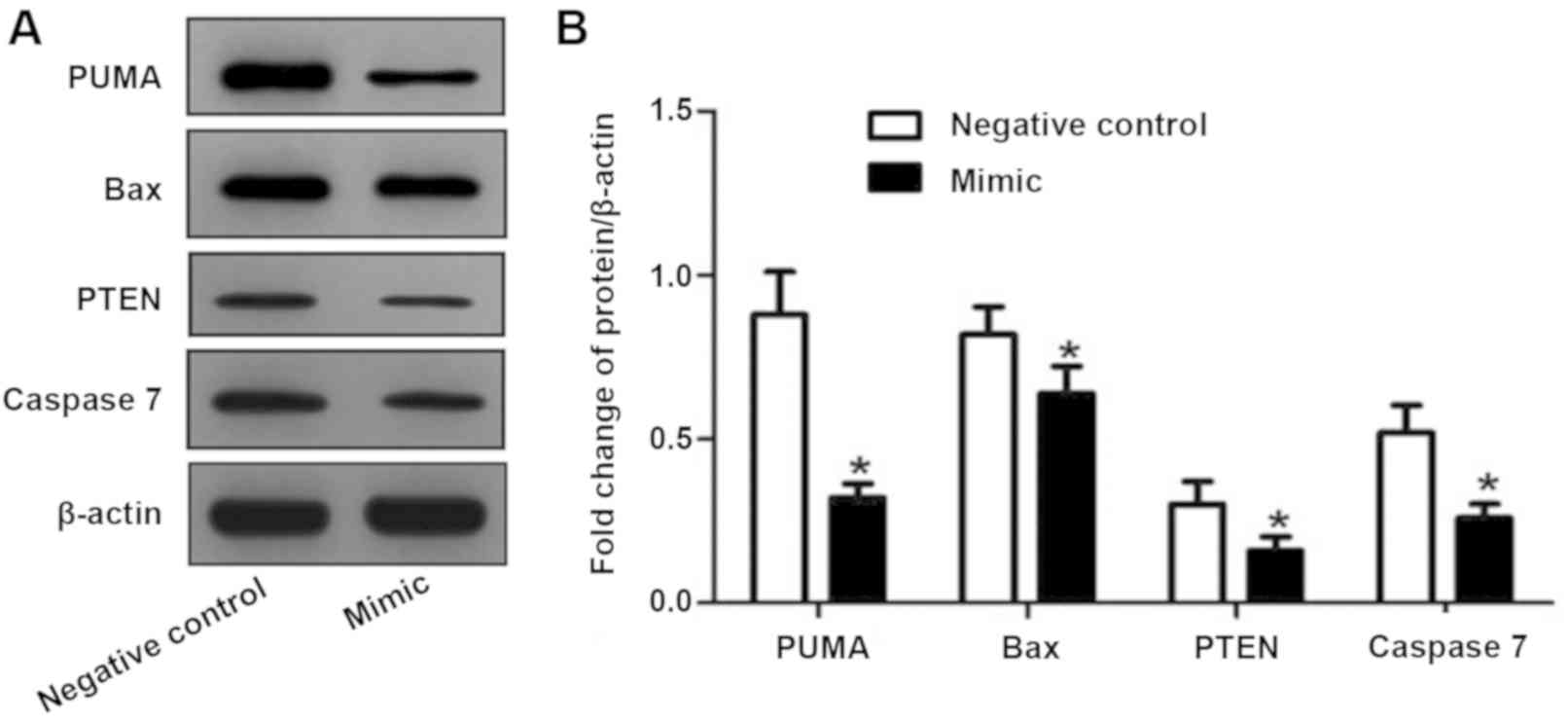|
1
|
Nichols M, Townsend N, Scarborough P and
Rayner M: Cardiovascular disease in Europe 2014: Epidemiological
update. Eur Heart J. 35:2950–2959. 2015. View Article : Google Scholar
|
|
2
|
Yeh RW, Sidney S, Chandra M, Sorel M,
Selby JV and Go AS: Population trends in the incidence and outcomes
of acute myocardial infarction. N Engl J Med. 362:2155–2165. 2010.
View Article : Google Scholar : PubMed/NCBI
|
|
3
|
White HD and Chew DP: Acute myocardial
infarction. Lancet. 372:570–584. 2008. View Article : Google Scholar : PubMed/NCBI
|
|
4
|
Jiang X, Guo CX, Zeng XJ, Li HH, Chen BX
and Du FH: A soluble receptor for advanced glycation end-products
inhibits myocardial apoptosis induced by ischemia/reperfusion via
the JAK2/STAT3 pathway. Apoptosis. 20:1033–1047. 2015. View Article : Google Scholar : PubMed/NCBI
|
|
5
|
Yang T, Gu H, Chen X, Fu S, Wang C, Xu H,
Feng Q and Ni Y: Cardiac hypertrophy and dysfunction induced by
overexpression of miR-214 in vivo. J Surg Res. 192:3172014.
View Article : Google Scholar : PubMed/NCBI
|
|
6
|
Yang T, Zhang GF, Chen XF, Gu HH, Fu SZ,
Xu HF, Feng Q and Ni YM: MicroRNA-214 provokes cardiac hypertrophy
via repression of EZH2. Biochem Biophys Res Commun. 436:578–584.
2013. View Article : Google Scholar : PubMed/NCBI
|
|
7
|
Chen Q, Huang J, Wang H, Zhao J, Chen G,
Qi J, Lin X, Chen L and Lin Q: Effects of chronic intermittent
hypoxia on regulation of miRNA-214 in myocardial apoptosis in rats.
Zhonghua Yi Xue Za Zhi. 95:1214–1217. 2015.(In Chinese). PubMed/NCBI
|
|
8
|
Mendis S, Thygesen K, Kuulasmaa K,
Giampaoli S, Mähönen M, Ngu Blackett K and Lisheng L; Writing group
on behalf of the participating experts of the WHO consultation for
revision of WHO definition of myocardial infarction, : World Health
Organization definition of myocardial infarction: 2008–09 revision.
Int J Epidemiol. 40:139–146. 2011. View Article : Google Scholar : PubMed/NCBI
|
|
9
|
Chinese Society of Cardiology of Chinese
Medical Association and Editorial Board of Chinese Journal of
Cardiology: Guideline for diagnosis and treatment of patients with
unstable angina and non-ST-segment elevation myocardial infarction.
Zhonghua Xin Xue Guan Bing Za Zhi. 35:295–304. 2007.(In Chinese).
PubMed/NCBI
|
|
10
|
Livak KJ and Schmittgen TD: Analysis of
relative gene expression data using real-time quantitative PCR and
the 2(-Delta Delta C(T)) method. Methods. 25:402–408. 2001.
View Article : Google Scholar : PubMed/NCBI
|
|
11
|
Libby P: Mechanisms of acute coronary
syndromes and their implications for therapy. N Engl J Med.
368:20042013. View Article : Google Scholar : PubMed/NCBI
|
|
12
|
Cao W, Guo Q, Zhang T, Zhong D and Yu Q:
Prognostic value of microRNAs in acute myocardial infarction: A
systematic review and meta-analysis. Int J Cardiol. 189:79–84.
2015. View Article : Google Scholar : PubMed/NCBI
|
|
13
|
Rayner K, Dimmeler S, Calin GA, Thum T,
Raizman JE and Diamandis EP: Novel biomarkers for acute myocardial
infarction: Is microRNA the new kid on the block? Clin Chem.
60:812–817. 2014. View Article : Google Scholar : PubMed/NCBI
|
|
14
|
Stone NJ, Robinson JG, Lichtenstein AH,
Goff DC Jr, Lloyd-Jones DM, Smith SC Jr, Blum C and Schwartz JS;
2013 ACC/AHA Cholesterol Guideline Panel, : Treatment of blood
cholesterol to reduce atherosclerotic cardiovascular disease risk
in adults: Synopsis of the 2013 american college of
cardiology/american heart association cholesterol guideline. Ann
Intern Med. 160:339–343. 2014. View
Article : Google Scholar : PubMed/NCBI
|
|
15
|
Lv G, Shao S, Dong H, Bian X, Yang X and
Dong S: MicroRNA-214 protects cardiac myocytes against
H2O2-induced injury. J Cell Biochem.
115:93–101. 2014. View Article : Google Scholar : PubMed/NCBI
|
|
16
|
Aurora AB, Mahmoud AI, Luo X, Johnson BA,
van Rooij E, Matsuzaki S, Humphries KM, Hill JA, Bassel-Duby R,
Sadek HA and Olson EN: MicroRNA-214 protects the mouse heart from
ischemic injury by controlling Ca2+ overload and cell death. J Clin
Invest. 122:1222–1232. 2012. View
Article : Google Scholar : PubMed/NCBI
|
|
17
|
Choy EY, Siu KL, Kok KH, Lung RW, Tsang
CM, To KF, Kwong DL, Tsao SW and Jin DY: An Epstein-Barr
virus-encoded microRNA targets PUMA to promote host cell survival.
J Exp Med. 205:2551–2560. 2008. View Article : Google Scholar : PubMed/NCBI
|
|
18
|
Wang F, Li L, Chen Z, Zhu M and Gu Y:
MicroRNA-214 acts as a potential oncogene in breast cancer by
targeting the PTEN-PI3K/Akt signaling pathway. Int J Mol Med.
37:1421–1428. 2016. View Article : Google Scholar : PubMed/NCBI
|
|
19
|
Zheng X, Li J, Peng C, Zhao J, Chi J, Meng
X, Yun X, Li D, Yu Y, Gao M and Li Y: MicroRNA-24 induces cisplatin
resistance by targeting PTEN in human tongue squamous cell
carcinoma. Oral Oncol. 51:998–1003. 2015. View Article : Google Scholar : PubMed/NCBI
|
|
20
|
He J, Tang Y and Tian Y: MicroRNA-214
promotes proliferation and inhibits apoptosis via targeting Bax in
nasopharyngeal carcinoma cells. Mol Med Rep. 12:6286–6292. 2015.
View Article : Google Scholar : PubMed/NCBI
|
|
21
|
Liu J, Li Y, Luo M and Yuan Z:
MicroRNA-214 inhibits the osteogenic differentiation of human
osteoblasts through the direct regulation of baculoviral IAP
repeat-containing 7. Exp Cell Res. 351:157–162. 2017. View Article : Google Scholar : PubMed/NCBI
|


















